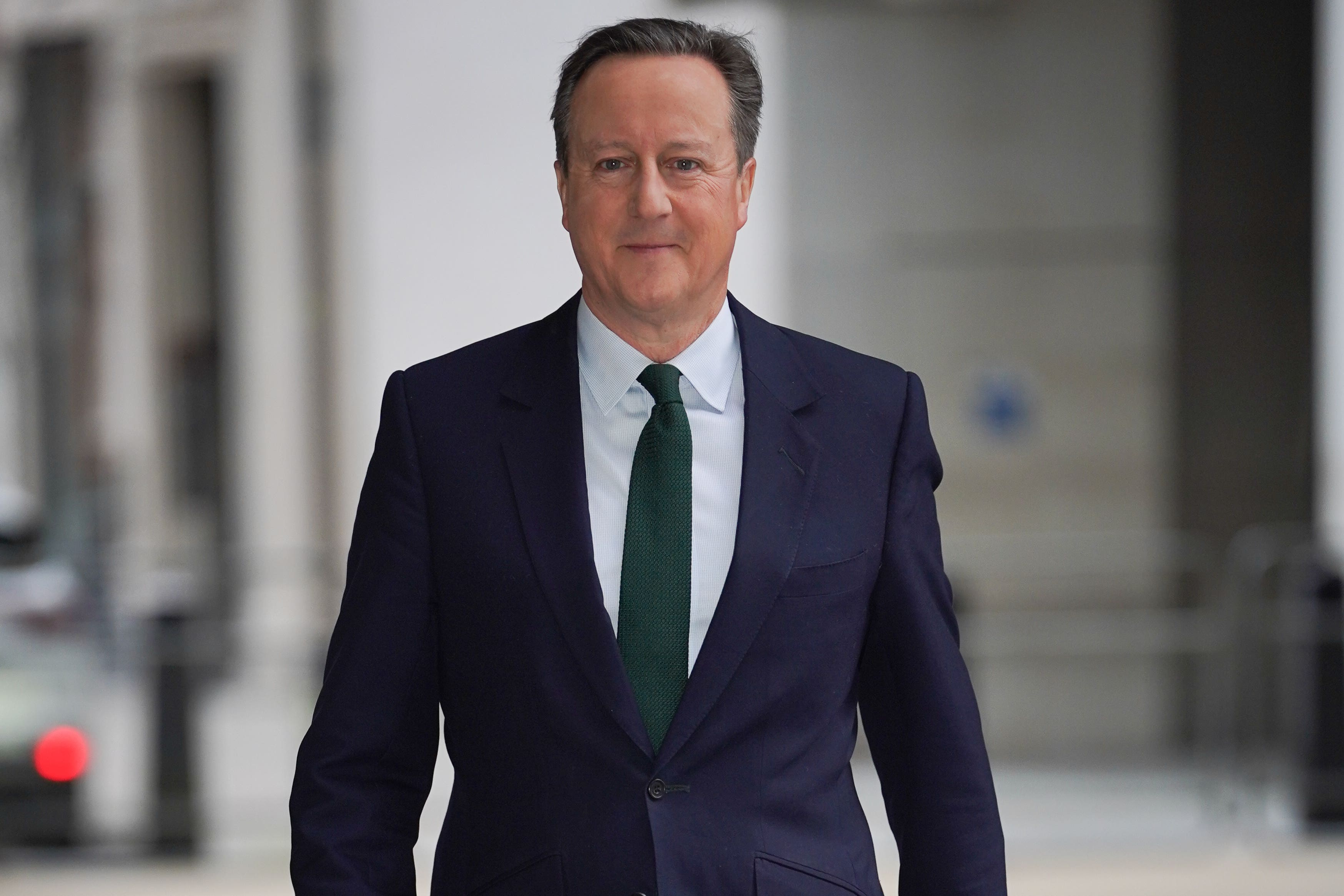Foreign Secretary Lord Cameron visits the Falklands: what you need to know
Lord Cameron will pay his respects to those who lost their lives in the 1982 Falklands War during his visit.

Foreign Secretary David Cameron will visit the Falkland Islands this week.
Here we look at some of the key questions around his visit:
– Why is it significant?
The last Cabinet minister to visit the Falkland Islands was then defence secretary Michael Fallon in 2016.
Lord Cameron is thought to be the first foreign secretary to visit the archipelago since Douglas Hurd in 1994.
– What will he do there?
He will pay his respects to those who lost their lives in the 1982 war which followed Argentina’s invasion of the islands and he will also visit key environmental projects.
Lord Cameron is also expected to see some of the islands’ most famous residents: its penguins.
– Why is he going now?
Part of the reason is that Lord Cameron is heading to South America for a meeting of the G20 foreign ministers in Brazil.
He is also honouring a promise made by his predecessor James Cleverly, who said he would visit the islands.
Ahead of his visit, Lord Cameron said the Falklands “are a valued part of the British family” and while the islanders want that to continue “the issue of sovereignty will not be up for discussion”.
– What about Argentina?
President Javier Milei, like his predecessors, believes his country has “non-negotiable sovereignty” over the Islas Malvinas, as the islands are known in Argentina.
But he has favoured a diplomatic approach, previously suggesting that a handover similar to way Hong Kong was ceded to the Chinese.
Lord Cameron and Mr Milei had a “warm and cordial” meeting in January and the Foreign Office said they “agree to disagree, and do so politely” over the Falklands.
– So there is no prospect of another war?
In 1982 Argentina believed the UK’s political interest in the Falklands was waning and they would not resist the invasion of the islands, which lie around 300 miles from Argentina and 8,000 from Britain.
Now there is an enhanced British military presence on the islands, including RAF Typhoon jets, and frequent statements of support for the islanders’ right to self-determination.
And Mr Milei has made clear that “the war option is not a solution”.
But the potential for future exploitation of oil fields around the islands could increase the value of the Falklands as a prize for Argentina.
– So what do the islanders think?
In a 2013 referendum, of 1,517 votes cast, a turnout of more than 90%, 1,513 were in favour of remaining a UK overseas territory while just three votes were against.
Bookmark popover
Removed from bookmarks